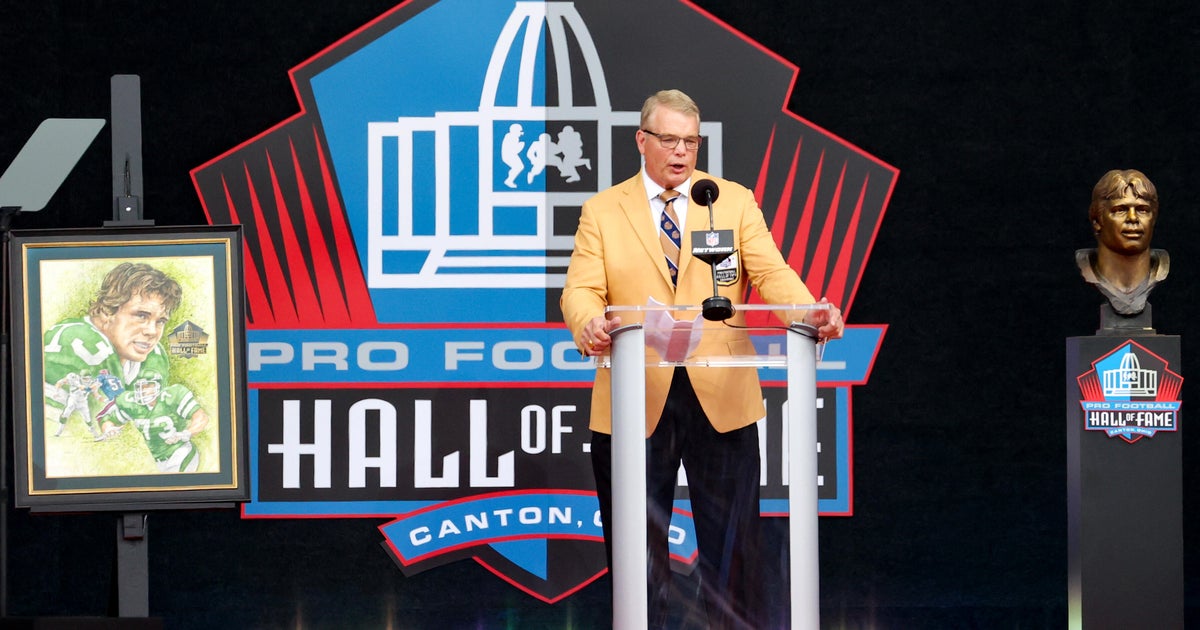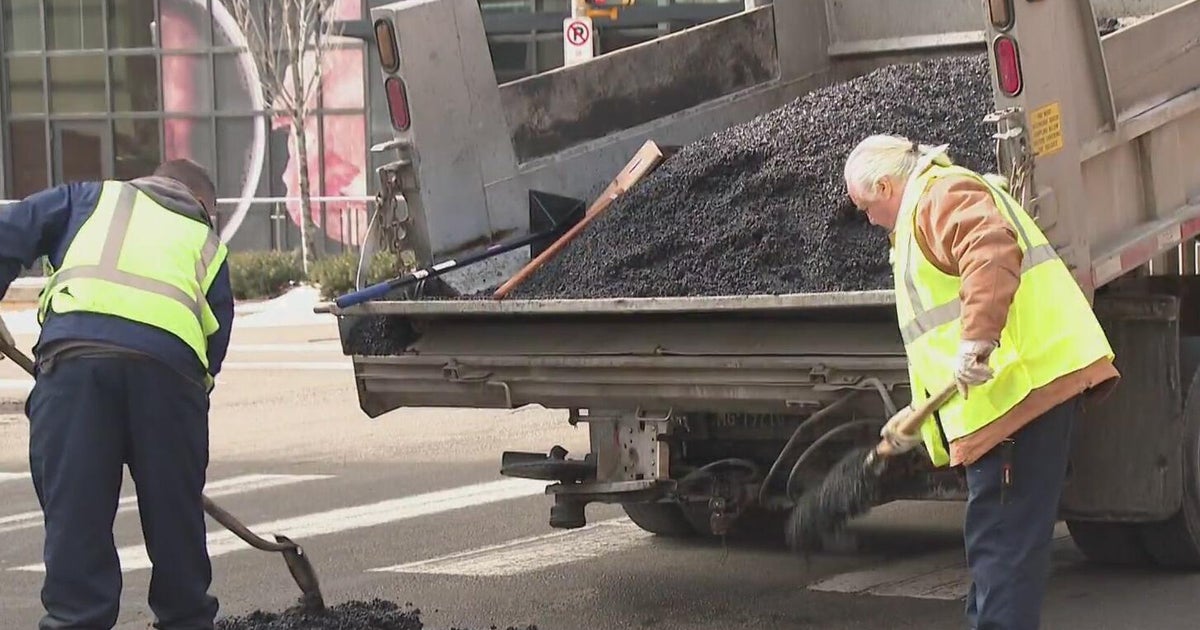Transcript: Samantha Power on "Face the Nation," September 15, 2019
The following is a transcript of the interview with former U.S. Ambassador to the United Nations Samantha Power that aired Sunday, September 15, 2019, on "Face the Nation."
MARGARET BRENNAN: We're back now with former U.S. Ambassador to the United Nations Samantha Power. She has a new memoir out, it's called "The Education of an Idealist." Thank you for being here.
FORMER U.S. AMBASSADOR TO THE UNITED NATIONS SAMANTHA POWER: Great to be here.
MARGARET BRENNAN: Does being an idealist survive working in the White House?
POWER: Definitely, but you do have to learn how to prosecute your ideals. So the story I tell is not one of going in naive about how easy it will be to promote human rights from Washington. But I went in knowing it'd be hard and then learned how to build coalitions, learned how to work with other countries to fight things like the Ebola epidemic or get political prisoners out of jail. But you do have to keep learning and be self-critical as you go and that's a story I tell.
MARGARET BRENNAN: Secretary Rice, you heard her just there, lay out a number of things she said were very similar between President Trump and President Obama in terms of responding to this strong reaction against military intervention. This idea that, you know, the system needs to be completely changed and that allies aren't shouldering more of the burden. Do you see those same similarities?
POWER: We could not be more different, in fact. It's true that in the wake of the disastrous invasion of Iraq and the overstretch and the militarization of our foreign policy after 9/11 generally, that there is a fatigue in the country. That part I agree with. But there is a major difference between the current approach of attacking our democratic institutions at home, undermining our ability to lead internationally, attacking our allies, cozying up to abusive regimes, alienating everybody so if you need them in the face of a crisis it's going to be very hard to pick up the phone and actually get people to come into your coalitions. A big difference between that which is the present and what we did which was strengthen our alliances- yes, call on allies to do more. The United States can't share the- can't shoulder the burden alone. Absolutely that is the case. But you can do so in a manner that still preserves the relationships, deepens the relationships and ensures that when you go and try to end the- Iran's nuclear program, you get not only the European allies at the table with you but also Russia and China for all of the difficulties there. When you go and try to broker an agreement to curb climate change, you go first to China and are actually able to forge that agreement and then you take it global and bring other countries on board and you're able to build a 78 nation coalition to defeat ISIS, which is something that President Trump has carried through. But he couldn't build that coalition today. There's no way after the reckless foreign policy that's been pursued.
MARGARET BRENNAN: You built your career, you won a Pulitzer Prize, around talking about human rights law, in particular genocide. And you're clear in your book that you morally had some problems with president--
POWER: And strategically.
MARGARET BRENNAN: --and strategically, but with President Obama's decision not to strike Syria in the wake of those devastating chemical weapons attacks. General Mattis called that the shot not heard around the world. Why didn't you resign?
POWER: Well first of all, in the book what I tried to do is bring readers into the situation room so they see just the complexity of decisions like that one. And when you are in the situation room and you're looking at the deaths of fourteen hundred people, and you're seeing refugee flows out of Syria that have the capacity, as they would go on to do, to destabilize countries, not just Syria itself. You see five-hundred thousand lives ultimately taken in Syria. There are a whole set of imperatives that grow out of that. At the same time, the U.S. Congress would not support President Obama when he went to them and said, "Hey, let's do this together, let's make sure that Assad can't wait us out--
MARGARET BRENNAN: Right.
POWER: --and just start gassing again, and then we're in a position where we're have- where we're divided domestically." So our foreign policy is going to be stronger if we can heal some of these divisions at home. And without that kind of base for acting internationally, especially when it comes to the use of military force, I think President Obama- again, I happen to take a different position but- but ultimately it is very hard to be a leader when the rug is being pulled out from you, particularly by the opposition party.
MARGARET BRENNAN: But Assad has now essentially won that war?
POWER: He has absolutely consolidated control over territory. But it's not the case necessarily, when you ask why I didn't resign, and I go into that at length in the book because a lot of people asked me that at the time.
MARGARET BRENNAN: I mean people ask the question now about the Trump administration, on matters of principle, why continue to serve and not resign if you object?
POWER: Well again, I would- I would draw distinctions between locking children up in cages and so forth and making, I think, a reasonable decision that U.S. military force alone would not have brought the war to an end. I thought, perhaps in the wake of the gas attack, we could catalyze diplomacy. It was a limited strike of the kind that I- I thought would not lead to entanglement. President Obama agreed, he was pursuing military force. And again, Congress did not support him in that regard reflecting, I think, the larger skepticism among the American people. But what I show in the book is how much good you can do from these jobs. And I was really fortunate to be a member of the president's cabinet, to be able to launch a campaign to get female political prisoners out of jail and to actually succeed in getting them out of jail, to be able to build a coalition on- with President Obama and Secretary Kerry to end the Ebola epidemic in West Africa when people had predicted that more than 1 billion people would die. So one, you know, we are divided as Secretary Rice indicated. The reason I chose to tell a very personal story was to open up just how meaningful this work can be and to show again, the complexity of decisions and to show that not everything is as binary and gets at the sort of "gotcha" politics that we have today. That there are good flesh and blood people inside government, inside of public institutions generally who are trying to make the world better and who do in fact succeed.
MARGARET BRENNAN: You helped shepherd through the Paris Climate Change accord which now every Democrat running for president says they're going to rejoin. But you- you also say that's not sufficient to meet the level of threat, right now. So what else needs to happen?
POWER: Well, first and foremost we have to meet the commitments that we made in the Paris Agreement. I mean one of the things President Obama did was had us bring the Paris Agreement into law, international law quicker than any international climate or environmental agreement ever, worried that in case the November 2016 election--
MARGARET BRENNAN: Right.
POWER: --went a different way then the agreement itself would collapse. So the agreement still exists globally but the commitments we made were a floor and everybody was very clear on that. So we've got to get into it, meet our commitments and then be much more ambitious in terms of what we do domestically and critically and this is why U.S. leadership is so catalytically important. We leverage the commitments we make, the sacrifices we make, to get other countries to do far more. That's how the global system works when it does.
MARGARET BRENNAN: Ambassador, it's a personal memoir. You talk a lot about being a- a working woman and the challenges of being pregnant and juggling all that at the same time, it's a good read--
POWER: To which you can relate.
MARGARET BRENNAN: It- it was a good read.
POWER: Thank you.
MARGARET BRENNAN: Thank you for joining us. We'll be back in a moment with a look at how Americans view climate change.



